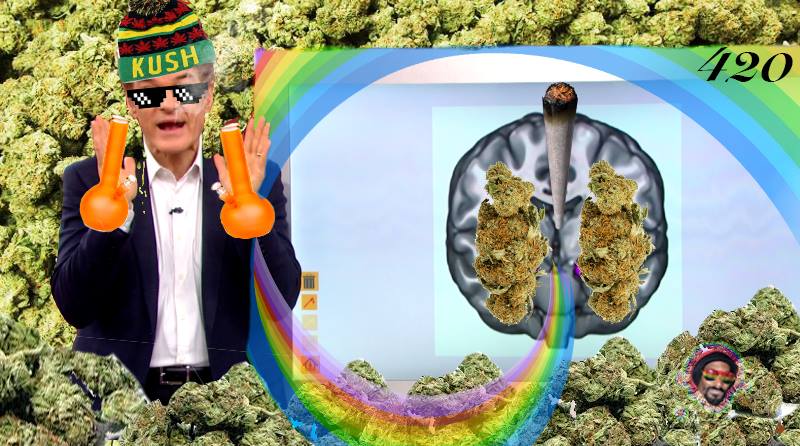Dr. Oz touts benefits of medical marijuana
September 28, 2017
Dr. Mehmet Oz, health professional and television host of the “Dr. Oz Show”, went on Fox and Friends last Thursday, Sept. 19 to promote his upcoming program in which he interviewed Ivanka Trump on the topic of postpartum depression after her pregnancy and her developing role in the White House.
After discussing these issues in lengthy detail with the hosts of Fox and Friends, Brian Kilmeade, host and contributor, brings up the topic of the opioid epidemic. Oz then took a very decisive stance on a topic that is not often discussed on the show.
“I talk about [the] opioid epidemic, but what the real story is, is the hypocrisy around medical marijuana. And, just real quickly, medical marijuana – people think (it) is a gateway drug to narcotics. It may be the exit drug to get us out of the narcotic epidemic,” Oz said. “But we’re not allowed to study it because it’s a Schedule 1 drug and I, personally, believe it could help.”
Steve Doocy, host of Fox and Friends, then quickly jumped in with “I hadn’t heard that one before,” as to quickly, and rather humorously, bat off Oz’s remarks.
“The Dr. Oz Show” is an American television show that originally aired on the Syndicate network. It’s akin to “Oprah” meets your friendly neighborhood doctor. The Dr. Oz show has seen its fair share of criticism by the public and other medical professionals, primarily for being misinformed or skewed, but it has become a staple of the respective networks. During each show, Oz decides to narrow in on a certain niche of health, fitness or overall well-being. The show is usually around an hour long, airs regularly on mid-day cable stations and is targeted primarily towards middle-aged women.
Despite what we in Washington state might think about medical marijuana and it’s effect on recovering addicts, it’s apparent that there is still a stigma surrounding the substance by the federal government, it’s regulations and many Americans.
Part of what Oz said in that interview is fact. Back in 2016, at the end of Obama’s term, there was potential for the DEA to reclassify medical marijuana as a higher schedule drug (meaning that it would be warranted as a drug that is less addictive), but that was quickly shot down.
Following the growth of medical marijuana used by the public, in 2011 the DEA posted a document on their homepage that shot down any hopes for marijuana reclassification on the federal level.
“The clear weight of the currently available evidence supports [Schedule I] classification, including evidence that smoked marijuana has a high potential for abuse, has no accepted medicinal value in treatment in the United States, and evidence that there is a general lack of accepted safety for its use even under medical supervision,” the DEA claimed, according to an article written in Popular Science.
According to the NYU Langone Comprehensive Epilepsy Center, medical marijuana and hemp oil could harbor benefits for patients who suffer from epileptic or continuous seizures. In this research, children were prescribed a non-psychoactive cannabis oil, known as cadobodile, or placebo alongside their regular prescription.
“The main findings of the study were that there was a very statistically significant reduction in the convulsive seizure frequency in patients who were randomized to cadobodile when compared to patients who were randomized to placebo. So the message is that cadobodile does work in reducing convulsive seizures in children with Dravet syndrome” Director of the NYU Langone Comprehensive Epilepsy Center Orrin Devinsky said.

Studies that relate to opioids and user addiction are few and far between, so there may be a chance for expansions somewhere in the future of State or Federal policy. And although Oz may not be the preferred spokesman for research efforts like these, he may be better than nothing.


Rhonda Bianco • Sep 29, 2017 at 7:06 am
I can’t find where I can sign for the federal government to fund research for medical marijuana